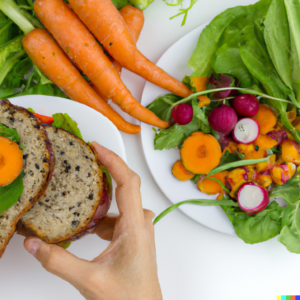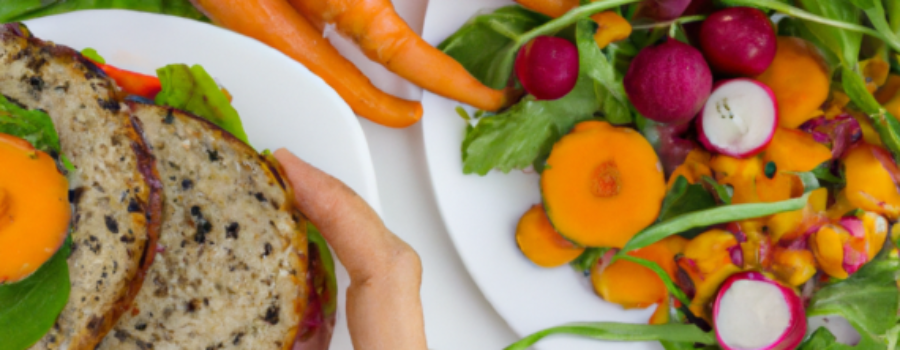 In recent years, there has been a growing interest in plant-based diets as people look for healthier and more sustainable ways of eating. A plant-based diet involves consuming foods that come from plants, including vegetables, fruits, whole grains, legumes, nuts, and seeds. Transitioning to a plant-based diet can seem overwhelming at first, but with the right mindset and approach, it can be a smooth and enjoyable process. In this blog, we will provide tips to help you transition to a plant-based diet.
In recent years, there has been a growing interest in plant-based diets as people look for healthier and more sustainable ways of eating. A plant-based diet involves consuming foods that come from plants, including vegetables, fruits, whole grains, legumes, nuts, and seeds. Transitioning to a plant-based diet can seem overwhelming at first, but with the right mindset and approach, it can be a smooth and enjoyable process. In this blog, we will provide tips to help you transition to a plant-based diet.
- Start Slowly
Transitioning to a plant-based diet does not have to happen overnight. It is important to start slowly and gradually make changes to your diet. Begin by incorporating more plant-based foods into your meals, such as vegetables and legumes, and reducing your intake of animal products. Over time, you can increase the amount of plant-based foods you consume and reduce your consumption of animal products.
- Experiment with New Foods
One of the benefits of a plant-based diet is the variety of foods available. Experiment with new fruits, vegetables, grains, and legumes to find new favorites. This can be a fun way to explore new flavors and textures while also increasing the nutritional value of your meals.
- Plan Your Meals
Planning your meals is a key component of a successful transition to a plant-based diet. Make a grocery list of plant-based foods and plan your meals in advance. This can help you stay on track and ensure that you are getting all the nutrients you need.
- Find Plant-Based Alternatives
Finding plant-based alternatives to your favorite animal products can make the transition to a plant-based diet easier. There are many plant-based alternatives available, such as tofu, tempeh, and plant-based meat substitutes. These alternatives can be used in a variety of recipes, including stir-fries, tacos, and burgers.
- Focus on Nutrient-Dense Foods
When transitioning to a plant-based diet, it is important to focus on nutrient-dense foods that provide your body with the nutrients it needs. Some nutrient-dense plant-based foods include leafy greens, berries, nuts, seeds, and whole grains. Incorporating these foods into your meals can help ensure that you are getting all the essential nutrients your body needs.
- Connect with Others
Connecting with others who are also transitioning to a plant-based diet can be helpful and motivating. Join online communities or attend local events to connect with like-minded individuals who can provide support and encouragement.
- Be Kind to Yourself
Transitioning to a plant-based diet can be challenging, and it is important to be kind to yourself throughout the process. Allow yourself to make mistakes and learn from them, and celebrate your successes along the way.
In conclusion, transitioning to a plant-based diet can be a rewarding and beneficial process for both your health and the environment. By starting slowly, experimenting with new foods, planning your meals, finding plant-based alternatives, focusing on nutrient-dense foods, connecting with others, and being kind to yourself, you can successfully transition to a plant based diet.

